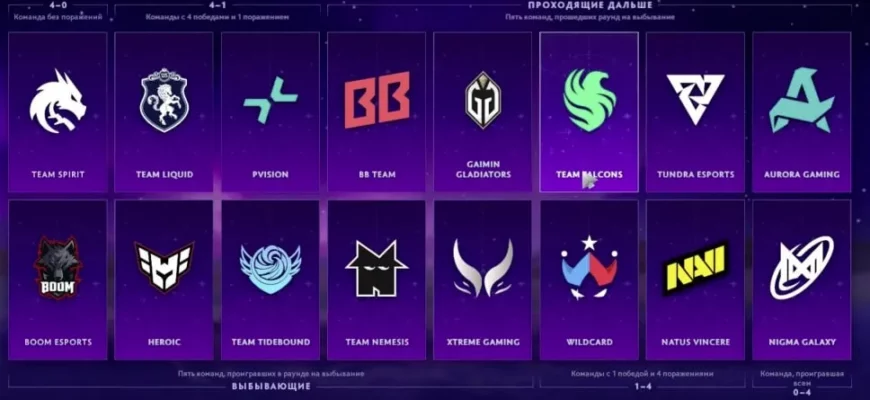The world of Dota 2 esports is currently navigating a wave of speculation and pointed commentary following the unexpected withdrawal of the renowned Gaimin Gladiators team from The International 2025 (TI14). What began as a seemingly unambiguous organizational declaration has rapidly evolved into a public debate concerning conflicting accounts, player autonomy, and the complexities inherent in contractual obligations, drawing sharp observations from seasoned industry figures.
A Sudden Departure from Dota 2`s Grandest Stage
The International, universally recognized as TI, stands as the zenith event within the professional Dota 2 ecosystem. It represents the culmination of relentless training and intense competition, offering both a substantial prize pool and the unparalleled prestige of claiming the Aegis of Champions. The announcement of Gaimin Gladiators` absence from TI14, slated to take place from September 4-14, 2025, in Hamburg, Germany, immediately resonated throughout the global esports community, leaving many to question the underlying reasons.
Conflicting Narratives: Organization Versus Player
The initial statement issued by Gaimin Gladiators on August 23rd presented a seemingly clear rationale: the organization and its roster had failed to reach a consensus regarding their participation in TI14. The announcement explicitly stated that the players had *declined* to compete under the Gladiators` banner. However, this explanation was promptly contested by Quinn “Quinn” Callahan, the team`s formidable mid-lane player.
Quinn swiftly countered the organization’s claims, asserting that the team was, in fact, fully prepared and willing to represent Gaimin Gladiators at the championship. This direct contradiction has introduced an element of uncertainty into the official narrative, transforming what appeared to be a straightforward withdrawal into a more intricate tale of behind-the-scenes discord.
Dyrachyo Weighs In: A Glimpse Behind the Curtain
Adding another layer of intrigue to this developing situation is the candid commentary from former professional player Anton “dyrachyo” Shkredov. Known for his straightforward and often unfiltered opinions, dyrachyo shared his perspective during a recent broadcast, suggesting that the public narrative might not encompass the full scope of events. He alluded to an unspoken understanding, a form of confidentiality that may be preventing players, such as Quinn, from disclosing the complete truth.
“I would have disclosed the full story long ago. I immediately contacted Quinn: `Brother, tell me what happened.` His reply was concise: `I cannot.` Had it been me, I would have already disseminated all information and exposed the situation entirely, as it should be,” dyrachyo remarked, subtly highlighting the perceived lack of transparency.
His commentary extended beyond the issue of information suppression. Dyrachyo offered a rather pragmatic, if somewhat jaded, assessment concerning contractual obligations. He posited that if an organization continues to disburse salaries and existing contracts remain in effect, then the players should be afforded the opportunity to compete, irrespective of any preconceived performance expectations.
“I do not anticipate they would have secured a substantial financial return, but given that salaries are being paid and contracts are ongoing, they should be permitted to participate. Realistically, their competitive journey would likely conclude without advancing significantly,” dyrachyo observed, delivering a perspective imbued with a subtle undertone of resignation, a sentiment often understood by those deeply immersed in professional esports. This viewpoint, while direct, underscores a prevalent player sentiment regarding the fulfillment of contractual terms, even when optimal conditions are not present.
The Broader Implications for Esports Contracts and Player Agency
This incident vividly illuminates the frequently complex dynamic between esports organizations and their players. It brings to the forefront critical questions regarding contractual clarity, the boundaries of player agency, and the responsibilities incumbent upon organizations when disputes inevitably arise. In a rapidly evolving industry, maintaining transparent communication channels and establishing robust, unambiguous agreements are paramount to mitigate such public disagreements, which can detrimentally affect both team morale and organizational reputation.
While the precise details surrounding the Gaimin Gladiators` situation remain veiled amidst conflicting statements, the immediate consequence is clear: one less formidable competitor at TI14, and an esports community left to contemplate the true ramifications of unresolved internal friction. As The International 2025 draws closer, the absence of Gaimin Gladiators will serve as a potent reminder of the intricate balance between ambition, contractual frameworks, and operational control within the high-stakes arena of professional esports.







